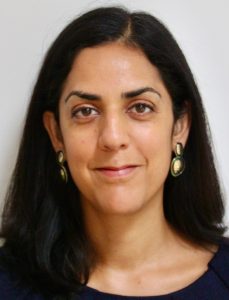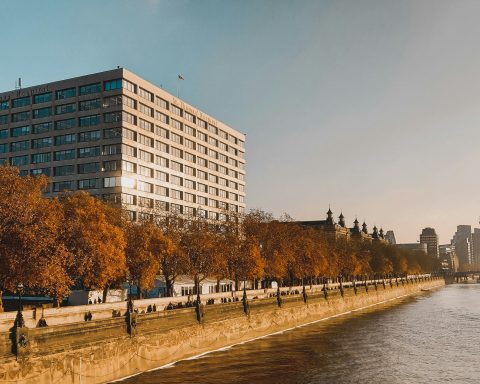
What’s in a name? General practice has sometimes struggled with defining itself, with the conflict between our generalist and specialist skills at the heart of this identity crisis.1 The Royal College of General Practitioners (RCGP) has recently updated its definition of a GP to a ‘consultant in general practice’, someone who has ‘distinct expertise and experience in providing whole person medical care whilst managing the complexity, uncertainty and risk associated with the continuous care they provide’.2 The RCGP is again also calling for a merger of the general practice and specialist registers. What’s the background to this, and what might it mean to rebrand GPs as consultants?
Merging the medical registers
The RCGP is again also calling for a merger of the general practice and specialist registers. What’s the background to this, and what might it mean to rebrand GPs as consultants?
Although general practice has a specialty training programme, on completion of an approved programme GPs currently apply to join not the specialist register, but the GMC’s separate general practice register. The aim of the RCGP, with support from the Academy of Medical Royal Colleges, the GMC and the BMA, is to merge the GP and specialist registers to recognise GPs as specialists and to deliver parity between GP and specialist medical registration in the UK. This move has been widely supported by GPs on the ground, with a motion passed at the annual local medical committees (LMC) conference affirming that GPs are expert medical generalists, and that a GP’s training, examinations and ability to manage complexities mean that GMC should ‘immediately merge the specialist register with the GP register and recognise the profession as specialists in primary care’, rebranding GPs as ‘consultants in family medicine’. Echoing these sentiments, the Wass report ‘By choice and not by chance’ recommends that general practice should be recognised as a specialty in its own right, with GPs known as ‘consultants in primary care’.3
Merging the specialist and general practice register will require legislative change as the current UK Medical Act separates the two registers, but plans are afoot for the Department of Health and Social Care to amend the Act and merge the two registers as early as 2025.4 What might be the impact of moving to a single register and why does this matter to these different stakeholders?
The impact of moving to a single register and the distinct boundaries of practice
One of the motivations behind a move to a single register and rebranding GPs as consultants is to help reduce the divide between primary and secondary care and to encourage trainees into a general practice career. There is a known and consistent professional tribalism between primary and secondary care. General practice has long been seen as an ‘inferior’ career fall by hospital doctors, with consultants occupying the ‘upper tier’ in the hierarchy stakes, with historical discrepancies in research, pay, and training solidifying this position.5 Qualitative research shows that general practice is often disregarded as a specialty in its own rights by hospital doctors, and these perceptions, and their influence, affect trainees and their career choices. Medical students report that general practice is often undermined and attracts negative comments from clinical academics, doctors and students as a ‘wasted career, an easy choice’, with skilful students advised that they are ‘too good for general practice’.6 Students also report experiencing negative attitudes to GP careers through the hidden curriculum, the subtle and implicit sociocultural and academic messages that operate at the level of institutions and lead to perceptions of a ‘specialty hierarchy’.7 Hospital specialisation is seen as ‘success’, with the lack of ‘specialist’ knowledge in general practice viewed as far less superior.
If this is a matter of status, would the powerful anti-GP rhetoric be lessened through a merger of the specialist register, and would more trainees be attracted to general practice if it was billed as a specialty? In their study of medical students, Hugh Alberti and colleagues mapped out a model looking at influencing factors in choosing general practice as a career, the heart of which are the perceptions of general practice from primary and secondary care, highlighting that ‘to tackle the problem of negative comments about GP as a career choice, we need to address both the factors that influence this perception of GP and the clinical contextual settings’.6 There are, of course, other factors at play in career choices, which are influenced by intrinsic factors (what am I good at, what do I enjoy) as well as extrinsic factors (work culture, perceptions, work-life balance and hours). These all interact with influences including previous experience and exposure to general practice, which is a known positive factor in trainees selecting general practice as a career and shaping clinicians perspectives even if they don’t become GPs. A move to a single specialty register and title of ‘consultant in general practice’ may help improve the prestige and respect of general practice amongst hospital consultants and reduce the effect of the hidden curriculum, but this is just is one part of a multifaceted puzzle of career influences.
Expert generalists or specialists in generalism?
Coming back to that tension within the identity politics of general practice, some within the profession discount a move towards branding GPs as a specialism, countering that general practice is a field of breadth, not necessarily always depth or specialist knowledge. Interestingly, the updated RCGP definition of a GP does not include the word specialist, and instead describes ‘expertise’ in whole person medical care.2 Would a move to be known as ‘consultants’ on the specialist register fuel this tension, or are we specialists at being generalists?
Whilst general practice has been taken a reputational beating of sorts for many years, it is hoped that a rebranding of the profession will be influential in changing long-held perceptions of inferiority.
As a generalist field, general practice is often defined by what it does, and by the broad and holistic care it provides, and what it does not do. This focus on the wider picture was captured by Trish Greenhalgh in her description of medical generalism as ‘characterised by a perspective on the whole rather than the parts, on relationships and processes rather than components and facts; and on judicious, context-specific decisions on how and at what level (individual, family, system) to consider a problem’.8 Taking this another step further is thinking about GPs as experts in generalist practice who take on a role of interpretive generalism as suggested by Joanne Reeve. She states, in her work on interpretative medicine, that general practice ‘should be defined not by the body of knowledge it owns/uses but by the way it uses knowledge’.9 So, perhaps we need to move away from thinking about the body of specialist knowledge we own as a profession (or the lack thereof), but focus more on how we use what we know to provide individual management of illness and illness experience in context, even where the diagnosis is uncertain or indistinct.
Leaving us with a definition of what we do
The RCGP definition of a GP highlights where we are experienced and what we’re good at, and takes into account our relationships with patients and the myriad of roles we undertake outside of the practice. We are experts at our generalist, and often interpretive approach. Whilst general practice has been taken a reputational beating of sorts for many years, it is hoped that a rebranding of the profession will be influential in changing long-held perceptions of inferiority. If you like what you see in the mirror when you see a ‘consultant in gneral practice’ then this move might at least be one step forward in terms of improving our own perceptions, and morale within our beleaguered workforce.
References
- Stein HF. Family medicine’s identity: being generalists in a specialist culture? Ann Fam Med. 2006;4(5):455-9.
- Definition of a GP: Royal College of General Practitioners; 2023 Available from: https://www.rcgp.org.uk/about. (accessed 17/11/23)
- Wass V. By choice – not by chance. Health Education England; 2016.
- Coombes R. GPs back plans to rebrand as “consultants in family medicine”. BMJ. 2023;381:1182.
- Gray DJ. Just a GP. J R Coll Gen Pract. 1980;30(213):231-9.
- Alberti H, Banner K, Collingwood H, Merritt K. ‘Just a GP’: a mixed method study of undermining of general practice as a career choice in the UK. BMJ Open. 2017;7(11):e018520.
- Parekh R, Jones MM, Singh S, Yuan JSJ, Chan SCC, Mediratta S, et al. Medical students’ experience of the hidden curriculum around primary care careers: a qualitative exploration of reflective diaries. BMJ Open. 2021;11(7):e049825.
- McWhinney IR. A Textbook of Family Medicine. 2nd ed. New York: Oxford University Press; 1997.
- Reeve J. Interpretive medicine: Supporting generalism in a changing primary care world. Occas Pap R Coll Gen Pract. 2010(88):1-20, v.
Featured Photo by Florian Schmetz on Unsplash








